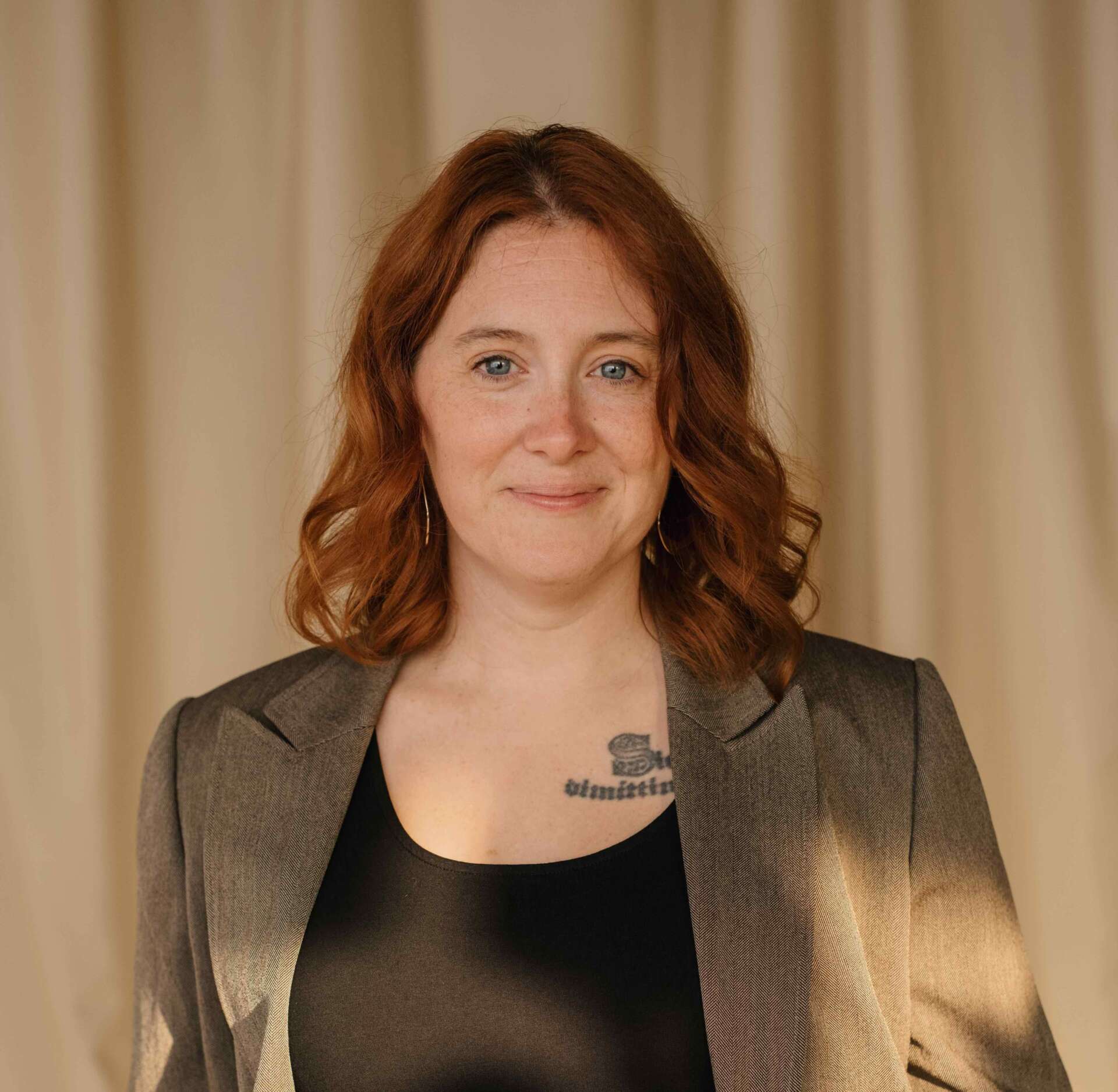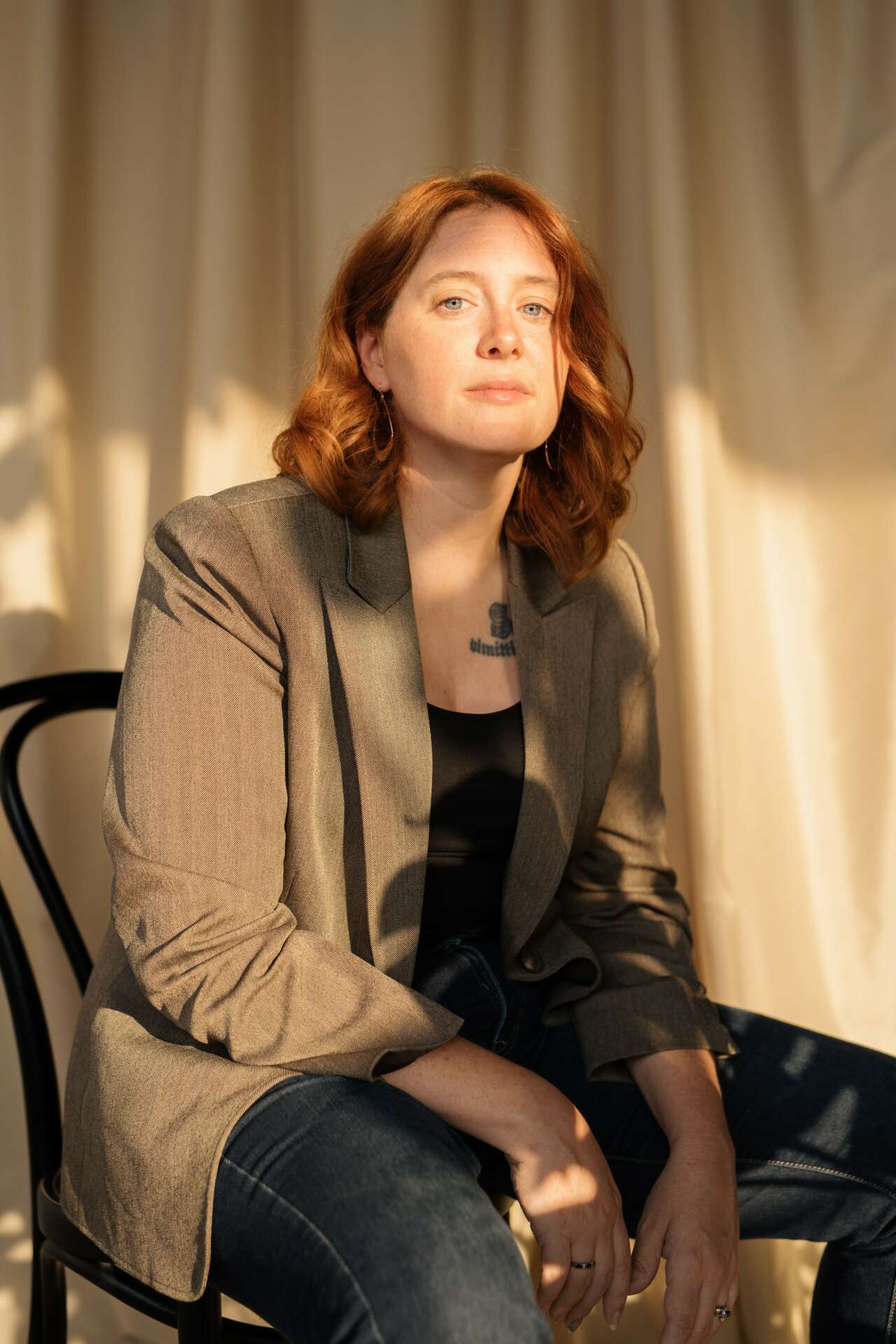We caught up with the brilliant and insightful Lara Supan a few weeks ago and have shared our conversation below.
Alright, Lara thanks for taking the time to share your stories and insights with us today. We’d love to hear the backstory behind a risk you’ve taken – whether big or small, walk us through what it was like and how it ultimately turned out.
Taking risks is one of the most important things I’ve seen on the industry side of the music world. Just recently I was faced with having to find a new place to work as my previous agency was downsizing. I had a number of roads I could go down, including being a part of a larger agency as an entry level agent or an agent coordinator at a very large agency but I chose to pave my own way and reopen an agency division that had temporary closed in 2021 due to COVID. It was a big risk, less money and way more work, but when I did some soul searching I realized it was where I needed to be as a strong woman in this industry. There were definitely less risky paths to take, but I’m betting on myself and I hope it pays off!

As always, we appreciate you sharing your insights and we’ve got a few more questions for you, but before we get to all of that can you take a minute to introduce yourself and give our readers some of your back background and context?
I find that most booking agents trip into this job instead of seek it out, which is definitely what happened for me. I always pictured myself as a professional musician. I graduated from Ithaca College with a degree in vocal jazz and taught voice and piano privately for over ten years. I was also in a local Americana band in the Washington DC area as a hobby. We started getting a little more popular so we decided to take our show on the road and attempt to do a national tour. I started doing booking for the band, and found that I enjoyed it quite a bit! We crowdsourced our first national tour via the PledgeMusic platform, which led to the co-creation of a crowdsourced touring platform called RoadNation a few years after our successful run. During the creation of that project, I offered booking help to bands that chose to launch the platform with us. Because of that, I created a “company” called Mile One Touring, mainly to make sure I wasn’t writing to venues with a Gmail address (we wanted to look professional!). My husband is a great website designer so we created a simple website as well. After I parted ways with RoadNation, industry veteran Fawn Goodman approached me about making Mile One a full service agency, and I decided to give it a go. We signed great artists like Heather Mae, Katie Kuffel, Grace Pettis and others in our first year but we were both finding it difficult to maintain an agency with such a low amount of artists. Fawn decided to go back to management and producing in 2108, and I had the opportunity to join up with Fleming Artists in 2019 after Jim Fleming and I worked on a co-bill tour together with his artist Crys Matthews and my artist Heather Mae. It was very round-about, but looking back I realize it was a long, winding way to get to exactly where I needed to be.
Being a booking agent is a very niche job. It combines a number of skill sets that don’t often go together- building relationships and building spreadsheets, managing expectations AND calendars, negotiating and being a nerd about Google Maps etc. On the surface, we book shows for artists. But that this just the tip of the iceberg of what a good agent can provide for an artist they’re collaborating with.
I am very proud of what I do as an agent. With a vastly unregulated job title like this, I find it so important to be diligent in providing the best service we can to our artists, and knowing when artists need our services. Learning how to say no is one of the most important aspects of this job, and I have developed a great sense for healthy boundaries while traversing this landscape. I’m also proud of being vocal about the problems currently facing our industry. There is an extreme lack of diversity in the agenting world and it is still a pretty toxically masculine environment for people. We’ve seen more people of color and women entering positions like management, talent buying and festival promoting but there’s still a significant lack of that in our field. The view of an agent still seems to be “cut throat” and “aggressive”, but I find this is an old-school approach to an evolving industry. I am very proud to say that I am an effective agent while maintaining a level of respect and humanity around my communication, especially during conflict. I am out to prove that we as agents can get results without losing our empathy for other humans during the process.
What can society do to ensure an environment that’s helpful to artists and creatives?
This is such an important question. Our society has been trending toward passivity, allowing content to create itself for us, watching what is handed to us on the platforms that are easiest to access, etc. Algorithms have been taking over critical thinking year by year. It is important to seek out music. Seek out connection with music. Engage with the artist. This means anything from sending the artist a DM to compliment them personally on a song that means something to you to purchasing a ticket to see their show. Most artists have Patreon, that is a great way to monetarily support an artist.
In addition to direct-to-artist support, we need to lobby our government for more supports for artists in general. Canada has multiple government run grant programs that give tens of thousands of dollars to artists for creation, logistical management, promotion and touring etc. They can fund almost every aspect of an artist’s life if the grant is approved. They have provincial export buyer programs that ship international industry professionals in from all over the world to come see their top artists in person to create opportunities for them to build their business outside of Canada. In the United States, we have nothing that even resembles this kind of support. To more directly affect the artistic world in general, please engage your local government and let them know support of the arts is extremely important to you. Volunteer to help if they choose to create opportunities for local musicians. This work is often overlooked but it is one of the most important ways to impact burgeoning artists and all future artists as well.
What do you think is the goal or mission that drives your creative journey?
I have two missions during my journey as a booking agent. First, I do want to grow my artists’ careers and make them successful. I want to be an expert in my field, become known as a taste maker with a carefully curated roster that you can trust. I want to be known as reasonable but firm agent that keeps artists’ careers at the forefront of my mind. However, I also want to be known as an agent who brought about change in this industry. I want to make my profession safer for women and people of color. I want to make it a position that might even be inclusive and positive for people in marginalized communities. When we put more folks from these communities in power, more folks of those same communities will be represented by them (in a way cis/white folks will never be able to do). We will gain perspectives we had no access to in the past. I personally can’t sit by and watch this profession be so inaccessible to so many, making it more difficult for artists of the same communities to be represented by people who really understand their needs. So I believe this mission is just as important as excelling in my field.
Contact Info:
- Website: www.midwoodentertainment.com/artist-division
- Instagram: https://www.instagram.com/midwood_entertainment/
- Facebook: https://www.facebook.com/midwoodentertainment
Image Credits
Kamryn Cusumano, Stay Open


